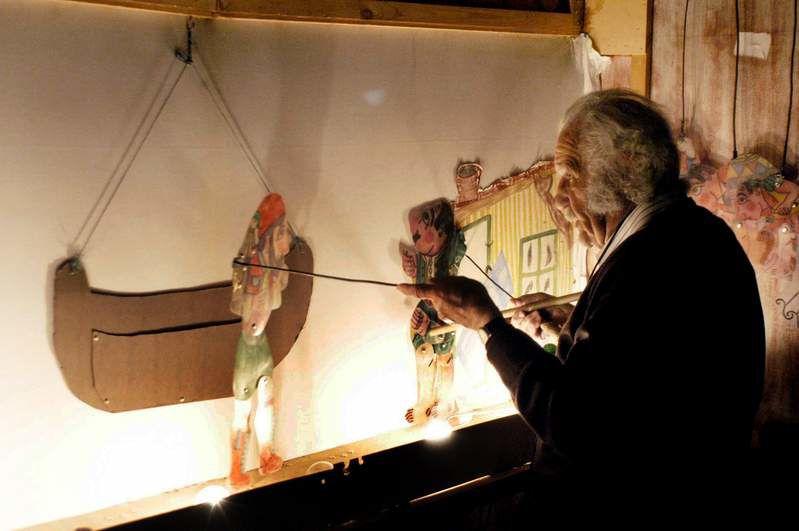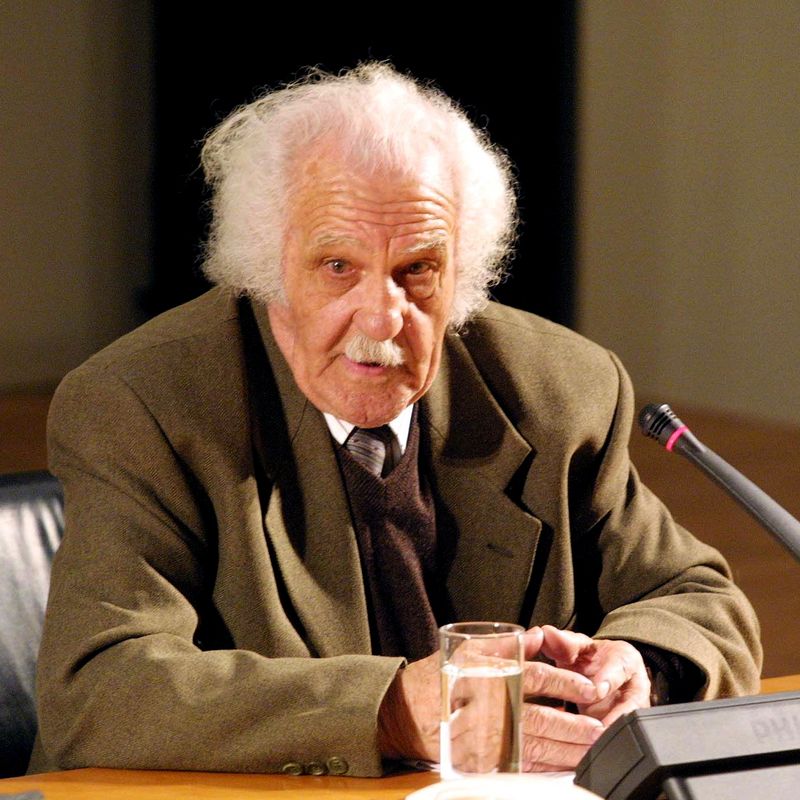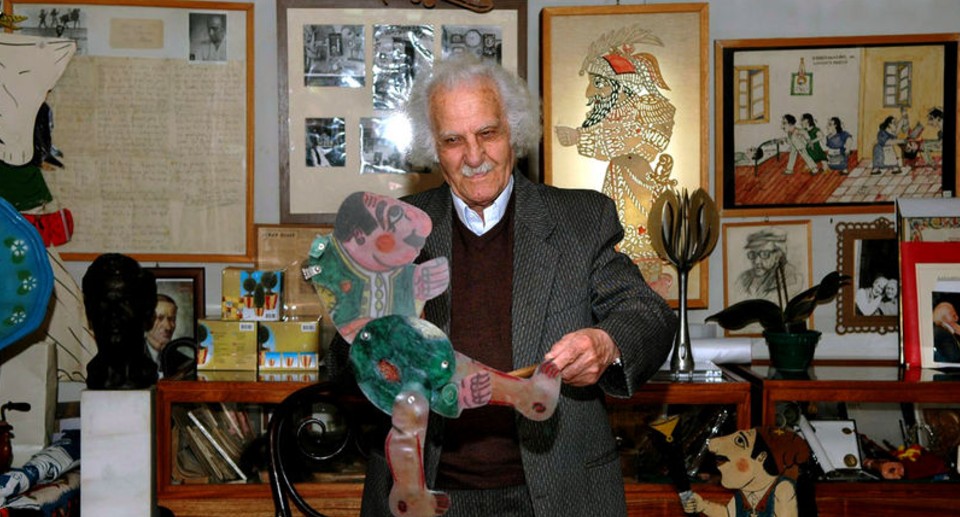On this day we remember the well-known shadow actor and painter Evgenios Spatharis, who was born in Kfissia, Athens in 1924. Shadow acting involves cut-out figures being made into puppets and projected on a screen.
Evgenios Spatharis is the son of Sotiris Spatharis who was a famous puppeteer. He was heavily interested in his father’s works, despite the unwillingness from his father, who wanted his son to be an architect. Spatharis’ first public performances were during the German occupation of Greece and would use heroic figures to spark confidence and strength in the population. The Germans found out about this performance and arrested and interrogated him. However, he managed to perform to the German soldiers, through an old connection. The Germans were so thrilled with the performance that instead of imprisoning him, they sent him to Germany to perform.
Spatharis was also famous for the creation of the Karagiozis performance. The puppet lived during the Ottoman Empire, was a hunchback, and due to being poor found obscure and cheeky ways to make money.

Spatharis eventually delved into painting and he has over 50 of his works in exhibitions, also collaborating with the likes of Manos Hadjidakis, Rallou Manou and Melina Merkouri.
Spatharis was a member of the Chamber of Artists of Greece, as well as the UNESCO International Theatre Institute. In 1962, he was awarded the Rome Prize, and in 1978 the Toscanini award. These accolades are two of many that he received over his lustrous career. In 2007, he was attributed to the ‘Grand Master’ by the Greek Culture ministry due to his extensive contribution to art.

Spatharis was invited to an event at the Goethe Institut in Athens on the 6th of May, where he was intending to give a lecture. He fell down the stairs and obtained a serious head injury on the way to the lecture room. He was transported to KAT hospital and unfortunately passed away 3 days later on the 9th of May.
His legacy lives on through his art gallery, which he opened up in 1991 and named the ‘Spathario Museum’. It displays some of his finest works and he is acclaimed to be a crucial figure of the Greek shadow acting industry and of cultural life as a whole.

